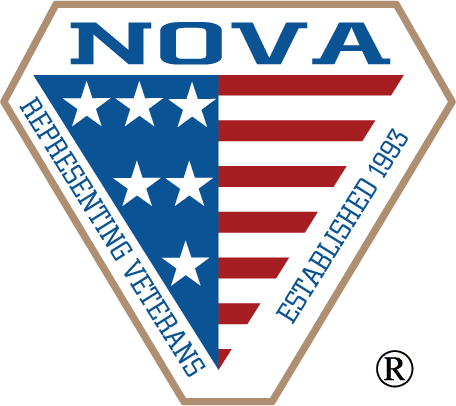Disabilities suffered by military service veterans aren’t always physical. According to one study, up to 17% of U.S. veterans live with combat-induced PTSD, and many others have other mental health disorders that began during or are due to their service. In some cases, these conditions can interfere with daily living as well as quality of life.
Fortunately, the VA recognizes a wide range of mental health disorders, including PTSD, depressive disorder, and anxiety, as conditions that may qualify for disability benefits. However, the application process can be complex, often requiring extensive documentation and thorough medical evaluations. In this blog, we outline what you need to know about the application process, the benefits you may receive, and how a Georgia VA disability lawyer can help.
What Mental Health Disorders Qualify for VA Disability?
The VA recognizes several categories of mental health disorders as eligible for disability benefits. If you can present a valid diagnosis and prove that your mental illness is service-related, you may qualify for these benefits.
The eligible categories of mental illness include:
- Anxiety Disorders: This category encompasses conditions such as generalized anxiety disorder, panic disorder, and post-traumatic stress disorder (PTSD). These disorders can significantly impact daily functioning and quality of life.
- Amnesia: Memory loss that affects your ability to perform everyday activities may qualify for VA disability, especially if it’s related to your service.
- Chronic Adjustment Disorder: This disorder involves an excessive reaction to a stressful event or situation, which can lead to emotional or behavioral symptoms.
- Cognitive Disorders: These disorders affect cognitive functions such as memory, problem-solving, and attention, which can be debilitating and require extensive treatment and support.
- Eating Disorders: Conditions like anorexia and bulimia fall under this category. These disorders can have severe physical and psychological impacts, warranting medical intervention and support.
- Mood Disorders: This includes depressive and bipolar disorder, which can cause significant emotional disturbances and affect your ability to function effectively in daily life.
- Schizophrenia and Other Psychotic Disorders: These severe mental health conditions involve symptoms such as hallucinations and delusions, which can greatly impair an individual’s reality perception and functioning.
- Somatoform Disorders: These are mental disorders that manifest as physical ailments without a clear medical cause, leading to significant distress and impairment.
With neurocognitive disorders, the VA assesses them according to the guidelines for mental disorders. If the same illness or injury, such as traumatic brain injury or Alzheimer’s, causes physical impairments, these may be evaluated separately. The separate ratings are then combined along with any other disability ratings.
How Does the VA Evaluate Disability from Mental Disorders?
To evaluate a veteran’s eligibility for benefits due to a mental disorder, the VA follows a specific process. A claim evaluator first determines if the veteran’s mental disorder is related to or began during military service. Once a service connection is established, the evaluator assesses the extent of the disability. This assessment is based on the evidence provided in the veteran’s claim and includes several key factors:
- Occupational and Social Impairment: The evaluator looks at how the mental disorder affects the veteran’s ability to work and interact socially. This includes considering the frequency, severity, and duration of psychiatric symptoms.
- Ability to communicate: The evaluator will assess the veteran’s communication style for illogical, obscure, or irrelevant speech.
- Adaptation to Stress: The evaluator will assess how well, if at all, the veteran can adapt to stressful circumstances (including work or a worklike setting).
- Inability or Difficulty to Establish and Maintain Effective Relationships: The evaluator will elicit information from the veteran to determine the breadth and depth of his or her interpersonal relationships, whether work or social.
- Suicidal or homicidal ideations: The evaluator will determine whether the veteran has thoughts of hurting self or others and whether there is a plan for such.
- Impaired impulse control: The evaluator will determine the veteran’s propensity for unprovoked irritability or overreactions to triggers from others and whether those episodes may lead to periods of violence.
- Ability to Perform Activities of Daily Living: Evaluators will note the veteran’s dress, appearance, and personal hygiene at the examination(s) and determine whether panic or depression affect the veteran’s ability to function independently, appropriately, and effectively.
- Judgment and Thinking: This concerns the ability to understand and process information whether complex or simple.
- Memory: Evaluators usually assess the veteran’s ability to remember short- and long-term information, including names, directions, recent or distant events. In more severe cases, this can include memory loss for names of close relatives, own occupation, or own name.
- Disturbances of Motivation: Evaluators will look at how the mental disorder impacts the ability to start and complete tasks, duties, or projects.
- Disturbances of Mood: These include depression, anxiety, suspiciousness, and panic attacks.
- Chronic Sleep Impairment: Many mental disorders impact sleep due to nightmares, anxiety, or hypervigilance. Evaluators should understand that chronic sleep impairment can adversely impact all other facets of the veteran’s ability to function and interact with others.
Disability Ratings
The VA uses a rating system to determine the level of disability:
- 0% Rating: If a mental condition is diagnosed but the symptoms do not significantly interfere with occupational or social functioning and do not require continuous medication, a 0% rating is given. This means the veteran is not eligible for monetary benefits but may still receive other VA services.
- 10% Rating: This is the minimum rating required for financial benefits and applies to veterans who experience mild or transient symptoms that decrease work efficiency, or when symptoms are controlled by continuous medication.
- 30% Rating: This is generally considered a mild to moderate level of symptoms. These veterans experience occasional decrease in work efficiency and intermittent periods of inability to perform occupational tasks but are generally able to function satisfactorily both socially and in the workplace.
- 50% Rating: Veterans with this rating typically have reduced reliability and productivity on a more regular basis. They may suffer from panic attacks more than once a week, exhibit certain irregularities with speech communication, and struggle with personal and work relationships.
- 70% Rating: These veterans have more severe forms of the particular mental disorder, with deficiencies in most areas – work, school, family relations, judgment, thinking, and mood. Some but not all at this rating level have suicidal ideations and experience near continuous panic or depression.
- 100% Rating: This maximum rating is given for total occupational and social impairment. Symptoms at this level include severe thought process or communication impairment, persistent delusions or hallucinations, grossly inappropriate behavior, suicidal ideation, and inability to perform daily activities, including maintaining basic hygiene.
It is important to note that these are just ratings guidelines. One veteran is likely to exhibit symptoms across more than one rating level. In fact, the higher levels of impairment encompass many of the symptoms described in lower ratings. In other words, the symptoms build on one another and move the veteran to a higher rating level.
How Do You Establish a Connection to Your Military Service?
The VA requires evidence that a specific incident or event during your service caused or aggravated your mental illness. To establish this connection, follow these steps:
- Diagnosis by a Mental Health Professional: Ensure you have a diagnosis of a qualifying mental illness from a medical professional or health care provider.
- Identify a Triggering Event: Pinpoint a specific illness, injury, or event that occurred during your active duty that led to your mental illness.
- Provide Medical Evidence of a Nexus: Submit medical evidence that creates a link between the in-service event and your mental health diagnosis.
It’s important to note that the VA has a list of mental illnesses that are not eligible for service connection, including intellectual disabilities and certain personality disorders like antisocial personality disorder and borderline personality disorder. However, if you have an existing condition but develop PTSD due to a service-related incident, your existing disorder does not necessarily bar you from receiving benefits for your PTSD.
Applying for VA Benefits – the Process
When the time comes to apply for disability benefits, start by collecting all medical records that document your mental health condition. This includes diagnosis, service treatment records, and any notes from medical professionals. You will also need to gather your military service records, which can help establish a connection between your service and your mental health condition, and prepare a detailed account of how your mental health condition affects your daily life and ability to work. Statements from family, friends, or colleagues can also support your claim.
You can submit your completed application in several ways:
- Online: You can apply for VA disability benefits online through the VA’s eBenefits portal.
- By Mail: Download and complete VA Form 21-526EZ.
- In-Person: Visit a local VA office or a Veterans Service Organization (VSO) to apply in person.
- With Assistance: Seek help from a VSO, accredited attorney, or accredited claims agent to assist you with the application process.
After receiving your application, the VA conducts an initial review to ensure all required information and evidence are included. It may schedule a Compensation and Pension (C&P) exam to evaluate the severity of your mental health condition. It’s important to attend this exam and provide honest, thorough answers. The VA then reviews your medical records, military records, personal statements, and C&P exam results to determine if your condition is service-connected and to assign a disability rating.
If your claim is denied or you disagree with the rating, you have the right to appeal. The appeals process involves submitting one of three different types of appeals – a Higher-Level Review, Supplemental Claim, or a Notice of Disagreement (NOD). The first two appeal types keep the appeal at the Agency of Original Jurisdiction (i.e., the Regional Office level), whereas a NOD escalates your appeal to the Board of Veterans’ Appeals for a more formal review and possible hearing, if requested, with a Veterans Law Judge.
How Much Can You Receive in VA Benefits for a Mental Health Disorder?
The amount of VA benefits you can receive for a mental health disorder depends on the severity of your condition, as the VA assigns disability ratings based on how much your mental illness impacts your ability to support yourself and perform routine activities.
For mental health conditions, the VA disability ratings can be 0, 10, 30, 50, 70, or 100 %. A 0 % rating does not qualify for monthly compensation, while a 100 % rating signifies total occupational and social impairment, qualifying you for the maximum benefit amount. If you receive a rating of 30% or higher, you may also be eligible for additional benefits for dependents living in your household.
As of December 1st, 2023, the VA disability rate benefit amounts for a single veteran with no dependents are as follows:
- 0% disability rating: $0.00 per month
- 10% disability rating: $171.23 per month
- 30 % disability rating: $524.31 per month
- 50% disability rating: $1,075.16 per month
- 70% disability rating: $1,716.28 per month
- 100% disability rating: $3,737.85 per month
Understanding these ratings and benefit amounts can help you better anticipate the financial support you may receive based on your own disability rating.
How Can a Georgia VA Disability Lawyer Help?
The VA disability claims process can be challenging, especially for mental health disorders. An experienced Georgia VA disability lawyer can provide essential support and guidance throughout this process.
Detailed Case Evaluation
A VA disability lawyer will thoroughly evaluate your case, reviewing medical records, service records, and personal statements. They can identify any gaps or weaknesses in your documentation and help gather additional evidence to strengthen your claim.
Filing the Application for Benefits
Filing a VA disability claim involves multiple steps and precise paperwork. This overview will hopefully provide some basic information so you can complete and submit the necessary forms and paperwork. This site also has information on what to expect during the Compensation and Pension (C&P) exam and how to present your symptoms and limitations accurately. Most veterans are able to file the initial paperwork themselves and then have an experienced VA disability lawyer review any decisions VA made.
Handling Appeals and Denials
If your claim is denied or you receive an unfavorable rating, a Georgia VA disability lawyer can guide you through the appeal process. They can help draft and submit the proper type of appeal for your particular case, represent you in conferences and hearings before the Decision Review Officer or the Board of Veterans’ Appeals (BVA), identify legal errors made by VA, and help gather and submit additional evidence to support your appeal, ensuring all relevant information is considered.
Maximizing Your Benefits
A skilled VA disability lawyer will work to ensure you receive the maximum benefits you are entitled to. They will evaluate the VA’s rating decision to determine if it accurately reflects the severity of your condition and seek higher disability ratings if your symptoms and impairments warrant them, potentially increasing your monthly disability compensation. This is why it is important to have a VA disability lawyer review any decisions you receive, even if the decisions seem fully favorable. There may be other benefits VA should have awarded but did not.
Speak to a Georgia VA Disability Attorney Today
The VA claims process can be difficult, especially when you’re already dealing with mental health challenges. Having a knowledgeable lawyer by your side provides peace of mind and a greater likelihood of receiving the disability benefits you need.
At Perkins Studdard LLC, we will put our years of experience and vast resources to work for you. As advocates for you and your family, we will aggressively pursue the benefits you earned and deserve. For more information or to schedule your free consultation, contact our law firm today.






